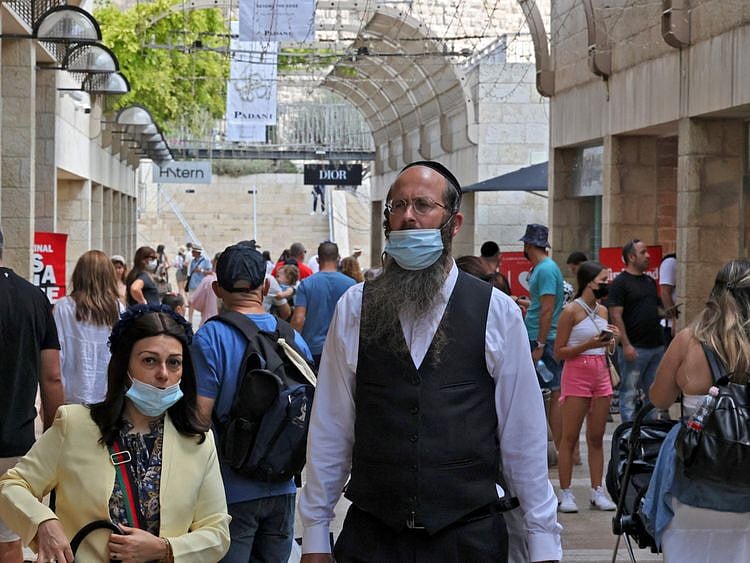Israel tightens restrictions as virus cases leap
Capacity of stores, shopping malls and industrial parks will be limited

Also In This Package
Jerusalem: New restrictions aimed at curbing the spread of COVID-19 took effect in Israel on Wednesday, after the largely vaccinated country saw the highest daily infection rate since January.
The measures, announced on Sunday, require vaccination certificates or negative coronavirus tests to enter a range of public spaces, including restaurants and bars, cultural and sports venues, hotels and gyms, the health ministry said.
The same applies to worshippers wishing to enter synagogues, mosques or churches with more than 50 people in attendance.
In addition, the capacity of stores, shopping malls and industrial parks will be limited to one person per seven square metres (75 square feet).
After its launch last December, Israel’s widely praised vaccination drive helped to drastically bring down infections.
But that trend has since reversed, driven by the spread of the more contagious Delta variant of the virus, with restrictions that were lifted in June reimposed since July.
In recent weeks, the state has begun administering booster shots to Israelis aged 50 and over, while urging anyone aged 12 and older to get vaccinated.
About one million Israelis have not been vaccinated even though they are eligible.
According to the health ministry, more than 8,700 people tested positive for coronavirus on Tuesday, the highest number for a single day since January.
Prime Minister Naftali Bennett has been imploring Israelis to get vaccinated, warning of a possible lockdown that could affect the Jewish high holidays next month unless inoculation numbers rise.
Sign up for the Daily Briefing
Get the latest news and updates straight to your inbox
Network Links
GN StoreDownload our app
© Al Nisr Publishing LLC 2026. All rights reserved.